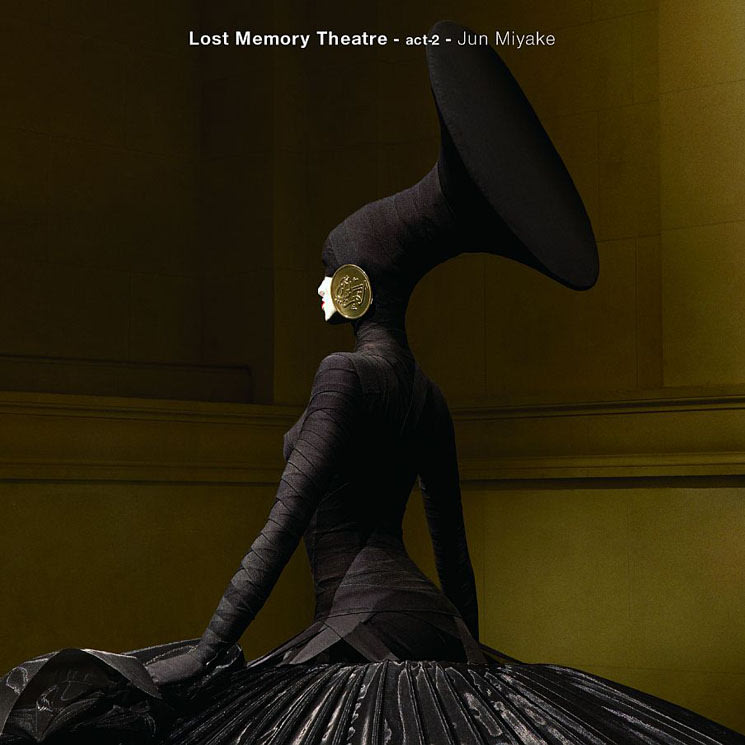Composer and trumpeter Jun Miyake has been on the scene in Japan since at least the early '80s, yet his career didn't really start peaking until the late '90s, with a sizzling trilogy of exotica-flavoured releases on Beams Records. His 2007 album Stolen From Strangers went on to win the Grand Prix for the German Record Critics' Award in 2008, while his contributions to the score for the 2011 dance documentary Pina helped push the film into Academy Award contention.
His latest release, the second instalment in his Lost Memory Theatre series, is not unlike a film itself. Jun Miyake explained his intention for the album thusly: "Memories become activated at unexpected places inside the theatre. In a locked royal box, in front of backstage mirrors, behind curtains, in the corridor to the cellar trapdoor... Every memory has a room where it belongs. I would like to step inside that room, to smell it, to inhale it. I want a theatre filled with these rooms of memories to appear in act-2. In search of the key to the small room that draws us into the abyss of consciousness."
Granted, that may sound a bit lofty and elusive, but when you hear act-2 begin to unfold, it makes perfect sense. Recorded in France, Japan and Bulgaria, with strings from the Bulgarian Symphony Orchestra, and a plethora of freesound.org samples (the producers of which he thanked in the liner notes), act-2 captures the free-association memory theatre of which Miyake spoke. The stuttering piano melody of "The Locked Room" sounds like Erik Satie, the brooding, simmering tension of "Effacing Sketch" sounds like a Clint Mansell cue, the scorching jazz of "Eden-4" sounds like something the Herbaliser would sample, and the field recording scream of "Foreboding" sounds like a Tanya Tagaq interlude. "Merry Widow," meanwhile, has a Cirque du Soleil gypsy mystic vibe. It's worldly music without being too specific, allowing the mind to wander and conjure relevant imagery, the directors of our own films.
Yet, despite its mind-melting sophistication and variety, there is an undercurrent of restraint in act-2 that keeps it on the level. The album is mindfully arranged for a perfect flow. Furthermore, while the likes of Arto Lindsay, David Byrne and Nina Hagen graced act-1 with their vocals, act-2 strips it down to exclusively feature the poetic lyrics and heartfelt vocals of frequent collaborator Lisa Papineau (Air, M83), save the Chie Umezawa-sung cover of "Que Cera Cera" that would do Pink Martini proud. No matter how far out there the dream gets, it feels elegantly grounded.
(Yellowbird)His latest release, the second instalment in his Lost Memory Theatre series, is not unlike a film itself. Jun Miyake explained his intention for the album thusly: "Memories become activated at unexpected places inside the theatre. In a locked royal box, in front of backstage mirrors, behind curtains, in the corridor to the cellar trapdoor... Every memory has a room where it belongs. I would like to step inside that room, to smell it, to inhale it. I want a theatre filled with these rooms of memories to appear in act-2. In search of the key to the small room that draws us into the abyss of consciousness."
Granted, that may sound a bit lofty and elusive, but when you hear act-2 begin to unfold, it makes perfect sense. Recorded in France, Japan and Bulgaria, with strings from the Bulgarian Symphony Orchestra, and a plethora of freesound.org samples (the producers of which he thanked in the liner notes), act-2 captures the free-association memory theatre of which Miyake spoke. The stuttering piano melody of "The Locked Room" sounds like Erik Satie, the brooding, simmering tension of "Effacing Sketch" sounds like a Clint Mansell cue, the scorching jazz of "Eden-4" sounds like something the Herbaliser would sample, and the field recording scream of "Foreboding" sounds like a Tanya Tagaq interlude. "Merry Widow," meanwhile, has a Cirque du Soleil gypsy mystic vibe. It's worldly music without being too specific, allowing the mind to wander and conjure relevant imagery, the directors of our own films.
Yet, despite its mind-melting sophistication and variety, there is an undercurrent of restraint in act-2 that keeps it on the level. The album is mindfully arranged for a perfect flow. Furthermore, while the likes of Arto Lindsay, David Byrne and Nina Hagen graced act-1 with their vocals, act-2 strips it down to exclusively feature the poetic lyrics and heartfelt vocals of frequent collaborator Lisa Papineau (Air, M83), save the Chie Umezawa-sung cover of "Que Cera Cera" that would do Pink Martini proud. No matter how far out there the dream gets, it feels elegantly grounded.
